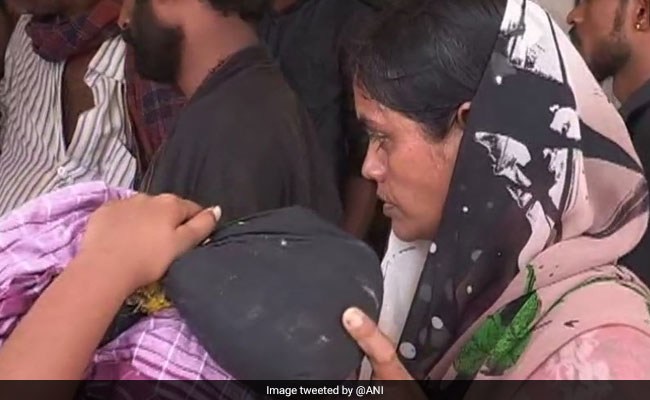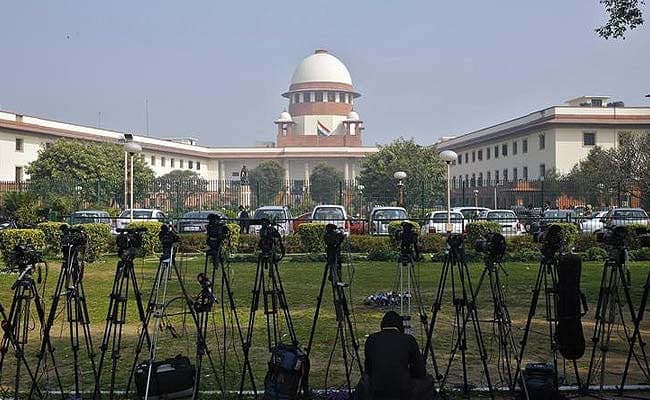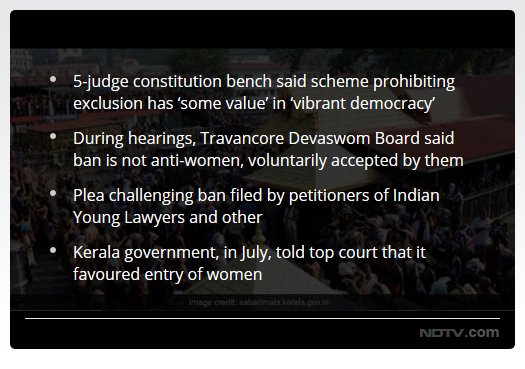Women of all ages can enter the Sabarimala temple in Kerala, the Supreme Court ruled today, ending an age-old ban on the entry of women between 10 and 50 years. "The practice of age restriction on women entry to Sabrimala temple can't be treated as an essential religious practice," said the court in a majority four-one judgement. The only judge who dissented on the five-judge constitution bench was Justice Indu Malhotra. Women said to be of menstrual age are restricted from entering the temple as its presiding deity, Lord Ayyappa, is considered to be a celibate.
The five-judge constitution bench headed by Justice Misra had reserved its judgement on a bunch of petitions that challenge the ban on entry of women on August 1 after hearing the case for eight days. The other judges on the bench are Justices R.F. Nariman, A.M. Khanwilkar, D.Y. Chandrachud and Indu Malhotra.
Here are the LIVE updates on Sabarimala temple verdict on women entry:
 Sabarimala Verdict: Sabarimala Temple Open To Women Of All Ages, Says Supreme Court: 10 Facts
Sabarimala Verdict: Sabarimala Temple Open To Women Of All Ages, Says Supreme Court: 10 FactsWill continue to Fight on #Sabarimala .
- Rahul Easwar (@RahulEaswar) September 28, 2018
Will be Filing a Review Petition pic.twitter.com/Pv0pQdYsa7
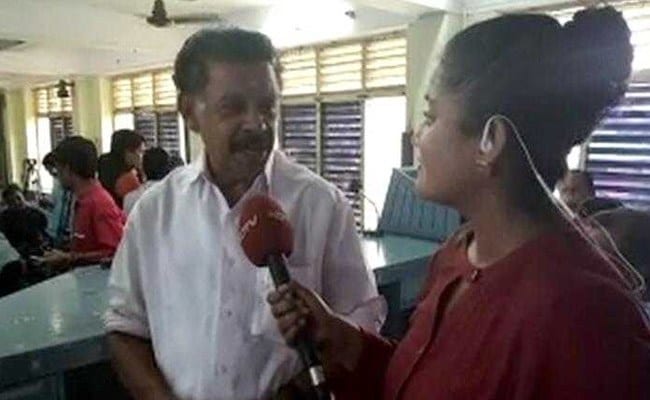
 Sabarimala Verdict Progressive: Congress
Sabarimala Verdict Progressive: CongressThe Congress on Friday described the Supreme Court's verdict to open the gates of the Sabarimala Temple in Kerala to women of all ages as "progressive" and said that there could be no discrimination to worship on the basis of gender."
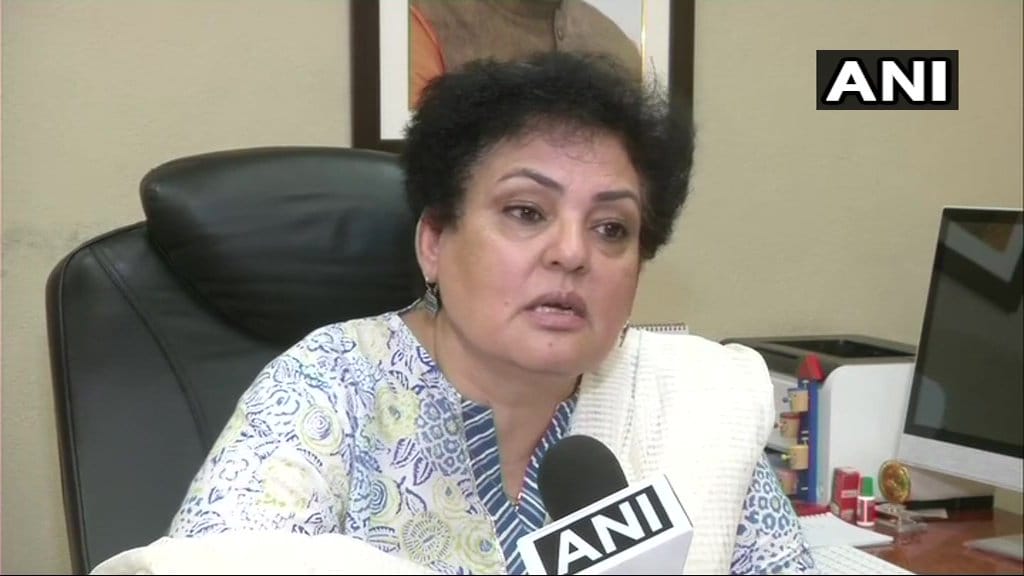
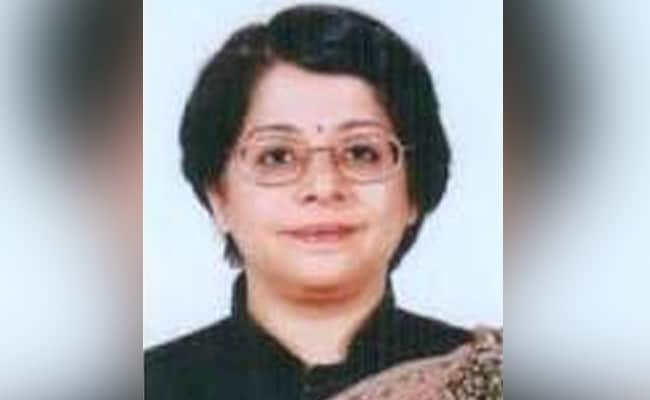 Sabarimala Verdict: Justice Indu Malhotra Dissented With Other Judges. Here's Why
Sabarimala Verdict: Justice Indu Malhotra Dissented With Other Judges. Here's WhyJustice Indu Malhotra, the only woman on the five-judge bench of the Supreme Court that ruled today that women of all ages must be allowed in Kerala's renowned Sabarimala temple, gave a dissenting judgment, disagreeing with her peers."
While I disagree with Justice Indu Malhotra , she has an opinion which must be read , I am sad though that a dissent in Shabrimalai came from a woman judge
- indira jaising (@IJaising) September 28, 2018
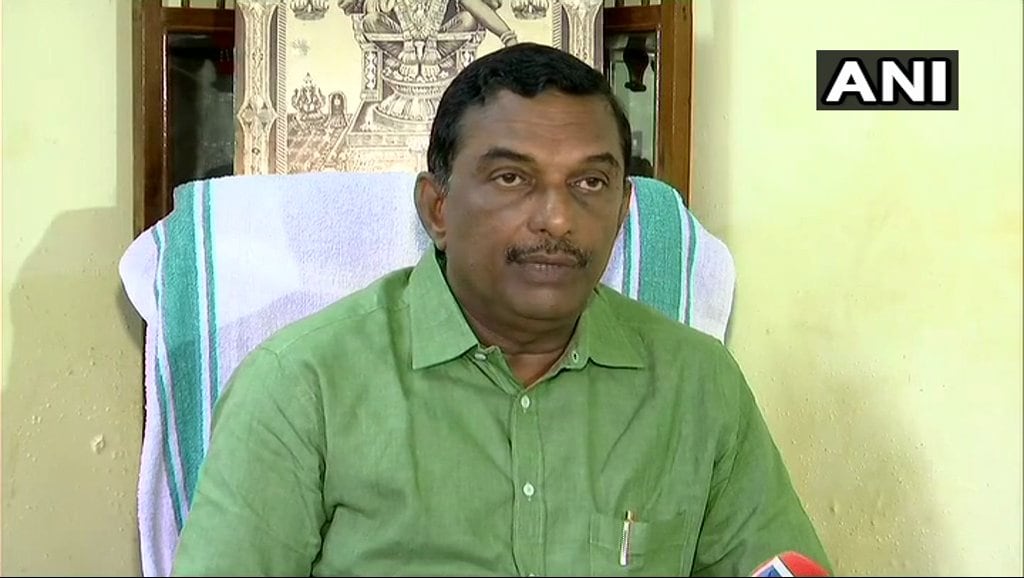
Devotees and Ayyappa Bhakths will go for REVIEW PETITION in Hon'ble Supreme court #Sabarimala
- Rahul Easwar (@RahulEaswar) September 28, 2018
So glad to see that the doctrine of fundamental rights creating a minimum standard in religious practise is gaining traction in the jurisprudence. #Sabarimala. Not glad at all for the dissenting judge to be targetted as a 'woman judge'.
- Karuna Nundy (@karunanundy) September 28, 2018
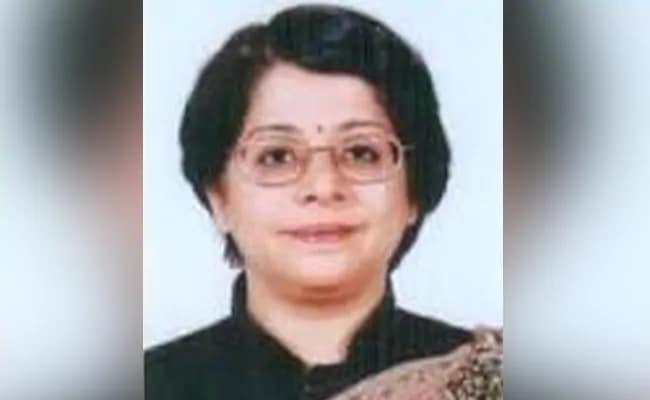
- What constitutes essential religious practice is for the relgious community to decide, not for the court
- Notions of rationality cannot be brought into matters of religion
- Balance needs to be struck between religious beliefs on one hand and cherished principles of non-discrimination and equality laid down by Constitution on the other
- The issues have far reaching effect all over
- Court shouldn't interfere with religious faiths
- If a person has faith on certain deity it has to be respected
- Religious practices are protected under the constitution
- Religious customs can be tested on the basis of Article 14
- It is not for the court to determine to strike down customs
- This issue what constitutes essential practices for the religious community
- Personal views of judges are irrelevant
- Article 25 protects all persons, it means every individual in the society.
- Religion cannot be cover to deny women right to worship.
- To treat women as children of lesser God is to blink at Constitutional morality
- In earlier days prohibition was because of nature and the notion of women are weaker sex
- To exclude women is derogatory
- Impose man Celibacy on women is to deny women rights and constitution doesn't recognise such rights
- Keeping women out of the temple on the basis of mensuration is against their dignity
- Devotees of Ayyappa not a separate sect
- Social exclusion of women on mensuration is untouchability and is anathema to the Constitution
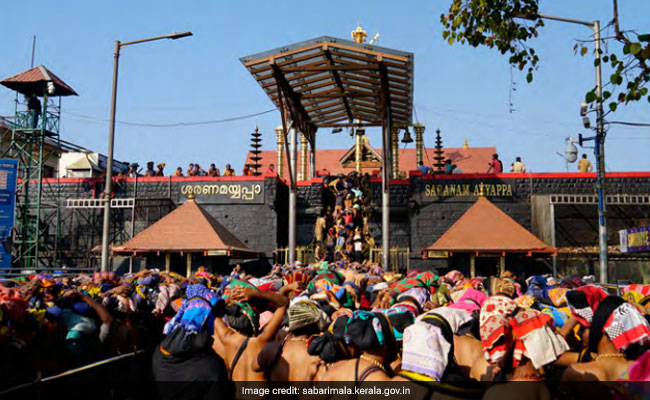 Sabarimala Verdict: Women Of All Ages Can Enter Sabarimala Temple, Says Top Court, Ending Ban
Sabarimala Verdict: Women Of All Ages Can Enter Sabarimala Temple, Says Top Court, Ending BanSabarimala verdict Women of all ages must be allowed in Kerala's renowned Sabarimala temple, the Supreme Court ordered today, ending ban on the entry of women between 10 and 50 years. For decades, women of menstrual age were restricted from entering the temple as its presiding deity, Lord Ayyappa, is considered to be a celibate."
- The law and society are tasked with the task to act as levellers
- Rule 3(b) of 1965 Rules is a clear violation of right of Hindu women to practice religion under Article 25
- The bar on entry of women between age of 10 and 50 years is not an essential part of the religion
- The practice of age restriction on women entry to Sabrimala temple can't be treated as an essential religious practice
- This is in a Majority
- The only woman judge in the bench, Indu Malhotra, is dissenting
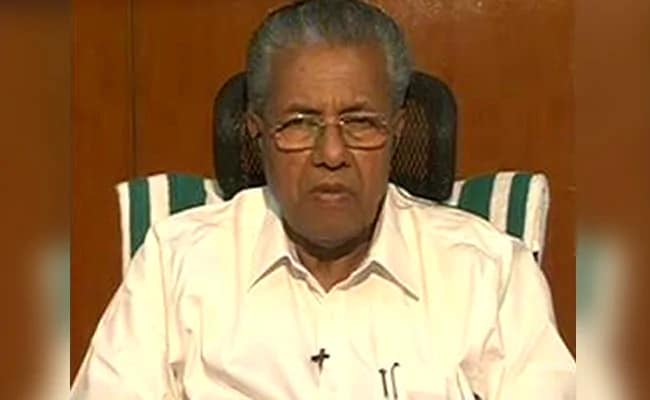
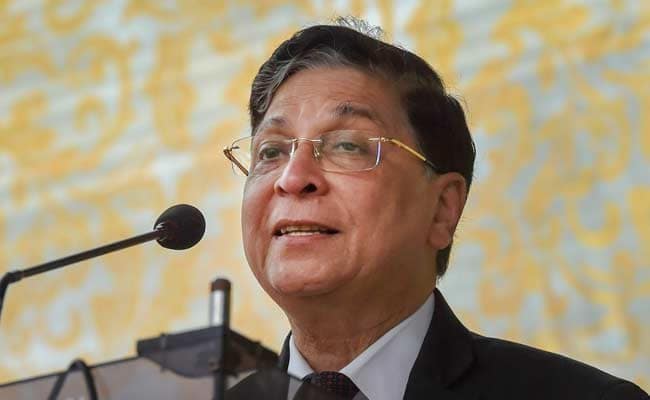
Ayyappa Devotees for #Sabarimala meet tomorrow at 9.30 am Trivandrum Press Club, Kerala. All are welcome.
- Rahul Easwar (@RahulEaswar) September 27, 2018
We will plan to take steps for Review Petition incase verdict goes against #Hindu interests and our #Temples pic.twitter.com/ocinF6mKgY
